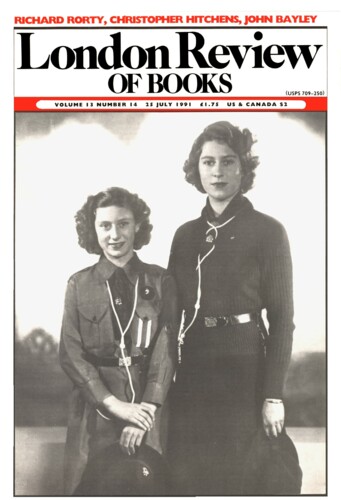Branka Magas
Branka Magas book on the origins and demise of the Yugoslav state will be published by Verso next year. She is an editor of New Left Review.
Losing the war in Yugoslavia
Branka Magas, 21 November 1991
One of the hardest things to comprehend about the war in Croatia is what it seems to tell us about the fragility of the whole Yugoslav project. Croatia, Kosovo, Macedonia and Slovenia have all declared independence with popular plebiscites to back them up. Bosnia-Herzegovina’s parliament has proclaimed a sovereign republic. Serbia is attempting to extend its frontiers by force of arms. The collapse of the state system in this part of Europe has been as swift as it has been astonishing. Debate about whether Yugoslavia has always been an artificial state is thus inescapable, but one has to look beyond the seventy years of Yugoslavia’s existence in order to understand, on the one hand, the relationship between the Yugoslav nations and, on the other, their sense of individual identity and purpose. The second break-up of Yugoslavia is the result of Serbia’s decision after 1987 to challenge the post-war Federal order in favour of its own domination – or, failing that, the creation of a Greater Serbia. For that to happen, however, Serbia itself had to be recast in an anti-democratic mould – it had to become Milosevic’s Serbia. And for this to happen, it was necessary to impose upon the Serb nation a sense of being surrounded by racial enemies threatening its biological survival. Serbia’s return to the past was more than the simple repossession of an older national project: only by releasing the demons of racial enmity upon the Yugoslav house of nationalities could Milosevic be sure of its destruction.’
Requiem far Yugoslavia
Branka Magas, 25 July 1991
As with any bereavement, the hardest thing for those left behind is accepting the fact of death. But now even I am forced to admit defeat after years spent keeping the log of Yugoslavia’s march towards the point of no return. It is merely a sign of my irresponsible faith in some last-minute miracle that it should have taken a full-scale Federal Army attack on one of Yugoslavia’s constituent republics to force me to accept that the past must be buried. Over the past four years or so I had become increasingly convinced that Yugoslavia was indeed dying. That it was just a matter of time. That its death made sense and should be welcomed. Yet even now, as I insist that the last rites be performed and the international community recognise the reality of Yugoslavia’s collapse, the appropriate response to this death eludes me.
Democracy in Europe
25 October 1990
The Kosovo Question
22 February 1990
Pieces about Branka Magas in the LRB
What is a war crime?
Françoise Hampson, 16 December 1993
Televised images of horror in the former Yugoslavia have been confronting us for nearly two years now, and the term ‘atrocity’ has been widely used. Are the ‘atrocities’...
Read anywhere with the London Review of Books app, available now from the App Store for Apple devices, Google Play for Android devices and Amazon for your Kindle Fire.
Sign up to our newsletter
For highlights from the latest issue, our archive and the blog, as well as news, events and exclusive promotions.





